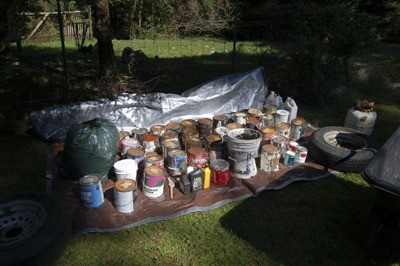It is Hazardous Waste Round-up time in San Juan County.
What? The hazardous waste round-up collection event is a once-yearly opportunity to legally and responsibly dispose of poisonous, flammable, corrosive or other hazardous chemicals.
Why? Taking responsibility for the waste you produce is the right thing to do, says the county. You don’t want this stuff sitting around your property. Proper disposal protects your health and the health of the workers that handle your waste. Proper disposal also keeps chemicals out of our drinking water and out of the environment.
Where? At your island’s solid waste facility.
The schedule
San Juan Island: Saturday, April 20 from 10 a.m. to 2 p.m.
Orcas Island: Saturday, April 27, 10 a.m. to 2 p.m.
Lopez Island: Sunday, April 28, 11 a.m. to 2 p.m.
You can bring pesticides and other poisons, gasoline and other waste fuels, wood preservatives, oil-based paints and stains, solvents, thinners, pool and photo chemicals, resins, mothballs, polishes, degreasers, cleaning products, spent fluorescent light tubes.
The following are not accepted at the round-up:
Flares, explosives, ammunition, or radioactive materials – deliver these to the Sheriff’s Office.
Antifreeze, motor oil, and vehicle batteries – recycle at your island’s solid waste facility during regular business hours.
Unbroken, spent Compact Fluorescent Lamps – deliver to your OPALCO office for free recycling.
Latex paint – dry out (solidify) and dispose as regular solid waste.
There is no charge at this year’s round-up for households disposing of 25 gallons or less of hazardous waste. Disposal costs are being paid by the San Juan County Solid Waste Division and Washington Department of Ecology. Businesses must pre-register by calling 370-7581 and will be invoiced for their disposal costs.
“Please remember: what you pour on the ground or into your drain today, you may be drinking out of your faucet tomorrow,” says the county.
For more information and answers to frequently asked questions, refer to San Juan County Public Works Solid Waste Division website: http://sanjuanco.com/sw/.



